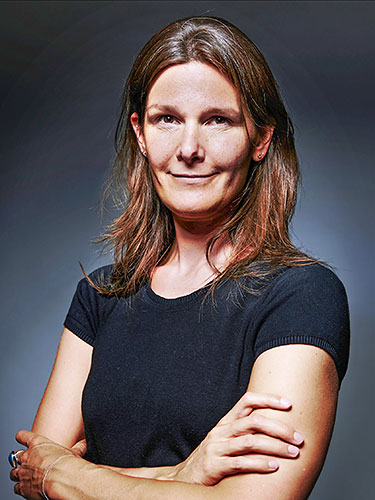A historian in the age of the data deluge.
Interview: Bettina Volz-Tobler
Historian Franziska Bühler of the Swiss Federal Statistical Office is responsible for coordinating the exchange of population data between the Swiss residents’ registers and Federal Statistical Office. Bühler serves as Section Head of sedex and Register Development, and she and her team play a key role in Switzerland’s federal data management.
UNI NOVA: Ms. Bühler, you studied history, philosophy and German philology, and you’re now working in a management role at the Federal Statistical Office. How did your career path lead you here?
FRANZISKA BÜHLER: Back in university, if somebody had told me that one day, I’d be a key player in Switzerland’s data management system and that I’d feel right at home working in IT, I would have laughed out loud. I was always sure I’d end up in a museum, planning and managing exhibitions, or in an archive, documenting and filing archival materials. Never would I have imagined that 20 years later I’d be in charge of storing all of the data representing the Swiss public in the right place and in compliance with the law and ensuring that the information superhighway is primed to handle the needs of a digitalized Switzerland. But when I look back over the years, the common thread running through my career has been communication.
During and after my studies, I began working in adult education, and that really gave me a chance to familiarize myself with and take advantage of a range of tools and opportunities. Then, when I was on the project staff for a cantonal data platform, I was able to draw upon the experience in data security I’d gathered working at the Basel-Stadt State Archives. Later, I transferred to a federal office where I was working in an area in which data security, data flow, strategy, innovation and politics all came together to be coordinated and communicated across all levels of administration.
UNI NOVA: Describe a day on the job. What do you like most about the work you do? BÜHLER: We build bridges across administrative levels – between the official Swiss population registers, between eGovernment projects and stakeholders, between the world of statistics and day-to-day business at local government offices. We take the IT data and translate it so it can be understood by everybody – and we try to pass on some of the joy we take in our work, even though we’re dealing with serious subjects. I handle an incredible array of topics; our team is made up of software developers, engineers, historians and IT support staff. We organize training sessions in municipalities and cantons, sit on the committees of national and cantonal data management projects and are asked to consult on issues surrounding innovation. We also make sure that our own services are kept up to date with the latest standards for data security and technology.
UNI NOVA: You have a degree in the humanities. What kinds of advantages has that presented in your current line of work?
BÜHLER: It’s imbued me with a certain fearlessness, with the daring to explore strange new worlds. To start with a question and set out on a quest for an answer. I conduct research, evaluate sources, explore different points of view, try and weigh all perspectives, and I’m not afraid of foreign languages – in both a literal and a figurative sense. My studies taught me to maintain a broad perspective. As a newcomer to the field, that’s all the more important. I don’t take a textbook approach to my discipline, so I’m forced to delve deep and explore all kinds of questions and uncertainties.
More articles in the current issue of UNI NOVA.

